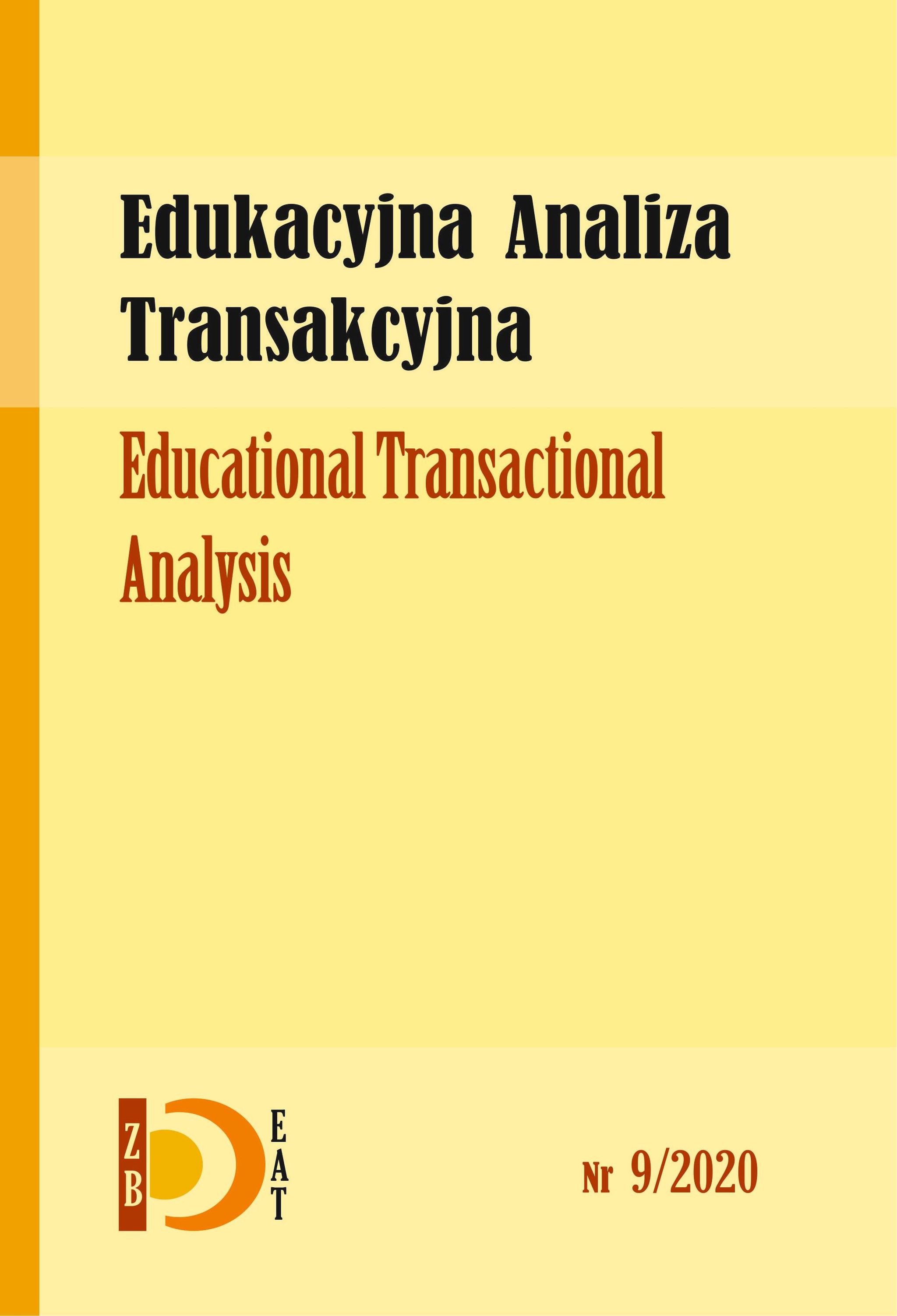Budowanie relacji w szkole przez odpowiadanie na indywidualne potrzeby uczniów i nauczycieli z wykorzystaniem Process Communication Model®
- Autor
-
-
- Słowa kluczowe:
- Process Communication Model, komunikacja, potrzeby psychologiczne, edukacja, relacja
- Abstrakt
-
Artykuł przedstawia podstawowe koncepcje oraz praktyczne zastosowanie w edukacji modelu osobowości Process Communication Model® opracowanego przez amerykańskiego psychologa klinicznego dr Taibiego Kahlera (Pauley, J., Bradley, D., Pauley J., 2002, s. xxiii). Model wskazuje jak skutecznie komunikować się uwzględniając różne typy osobowości poprzez używanie kanałów komunikacji oraz daje klucz do rozpoznawania potrzeb psychologicznych i wynikających z nich indywidualnych motywacji właściwych dla typu bazowego osobowości oraz fazy, czyli aktualnie dominującego typu (Kahler, 2008, s. 45–81, 111–116). Przedstawiono również praktyczne wnioski z zastosowania modelu w obszarze edukacji w szkołach na terenie USA (Donlan, 2003, s. 8-49).
- Pobrania
-
Statystyki pobrań niedostępne.
- Biogram autora
- Bibliografia
-
Akademia Przyszłości (2020), „Raport o dołowaniu” https://akademiaprzyszlosci.org.pl/raport-o-dolowaniu/ (data pobrania 13.11.2020)
Collignon, G. (2017). The Art of adaptive communication. Hot Springs: Kahler Communications, Inc.
Collignon, G., Legrand, P., Parr, J. (2010). Parlez-vous Personality? Process Communication for Coaches. Paris: Kahler Communication Europe.
Donlan, R. Ed.D., (2013) PCM Journal, 1, 45-67, The Process Education Model (PEM): A Catalyst for School Improvement
Gilbert, M. (2018) Student performance is linked to connecting effectively with teachers. Journal of Research in Innovative Teaching & Learning
Juul J. (2013) Kryzys szkoły. Co możemy zrobić dla uczniów, nauczycieli i rodziców?, Wydawnictwo Mind, Podkowa Leśna
Kahler, T., Capers, H. (1974). The Miniscript. Transactional Analysis Journal, 4 (1), 26–42, https://doi.org/10.1177/036215377400400110.
Kahler, T. (1975). Drivers: The Key to the Process of Scripts. Transactional Analysis Journal, 5 (3), 280–284, https://doi.org/10.1177/036215377500500318.
Kahler, T. (2008). The Process Therapy Model. Little Rock: Taibi Kahler Associates, Inc.
Lefeuvre, J. (2007). Discover Process Communication. Dunod, Paris: Kahler Communication Europe. Ware, P. (1983). Personality Adaptations (Doors to Therapy). Transactional Analysis Journal, 13 (1), 11–19, https://doi.org/10.1177/036215378301300104.
Muse School reportaż https://www.youtube.com/watch?v=bMg2suPUxIE (pobrano 13.11.2020)
Pauley, J., Bradley, D., Pauley J., (2002). Here’s how to reach me. Matching Instruction to Personality Types in Your Classroom, Baltimore: Paul H. Brookes Publishing Co.
- Pobrania
- Opublikowane
- 30.12.2020
- Numer
- Nr 9 (2020)
- Dział
- Analiza transakcyjna w edukacji
- Licencja
-
Prawa autorskie (c) 2020 Anna Hady

Utwór dostępny jest na licencji Creative Commons Uznanie autorstwa 4.0 Międzynarodowe.
OŚWIADCZENIE AUTORA:
Mam świadomość, że czasopismo jest wydawane na licencji Creative Commons - Uznanie autorstwa (https://creativecommons.org/licenses/by/4.0/legalcode).
Przesyłając artykuł wyrażam zgodę na jego udostępnienie na tej licencji
Jak cytować
Podobne artykuły
- Paweł Plaskura, Edukacja w dobie generatywnej sztucznej inteligencji: perspektywa analizy transakcyjnej , Edukacyjna Analiza Transakcyjna: Nr 14 (2025)
- Zbigniew Wieczorek, Personality Traits in the Context of Transactional Analysis and Emotional Intelligence in Young Adults: A Research Report , Edukacyjna Analiza Transakcyjna: Nr 13 (2024)
- Ewa Wilczewska, Feedback jako edukacyjne narzędzie zaspokajania potrzeb i obszar wymiany znaków rozpoznania , Edukacyjna Analiza Transakcyjna: Nr 9 (2020)
- Zbigniew Wieczorek, Objawy lęku i depresji w mediach społecznościowych w związku z zagrożeniem COVID-19 , Edukacyjna Analiza Transakcyjna: Nr 9 (2020)
- Zbigniew Wieczorek, dr, Język zmiany w analizie transakcyjnej , Edukacyjna Analiza Transakcyjna: Nr 6 (2017)
- Agnieszka Woś-Szymanowska, mgr, Process Communication Model – skuteczne narzędzie wspierające edukację , Edukacyjna Analiza Transakcyjna: Nr 7 (2018)
- Justyna Józefowicz, Skuteczna szkoła w kryzysie COVID-19 , Edukacyjna Analiza Transakcyjna: Nr 10 (2021)
- Anna Batorczak, Potrzeby i szanse partycypacji studentów w procesie decyzyjnym na rzecz zrównoważonego rozwoju na uniwersytetach , Edukacyjna Analiza Transakcyjna: Nr 14 (2025)
- Paulina Ratajczak, Motywacja oraz motywowanie w procesie kształcenia w ujęciu teorii analizy transakcyjnej , Edukacyjna Analiza Transakcyjna: Nr 11 (2022)
- Piotr Toczyski, Potential of Educational Transactional Analysis for Human Rights Education , Edukacyjna Analiza Transakcyjna: Nr 13 (2024)
Możesz również Rozpocznij zaawansowane wyszukiwanie podobieństw dla tego artykułu.


